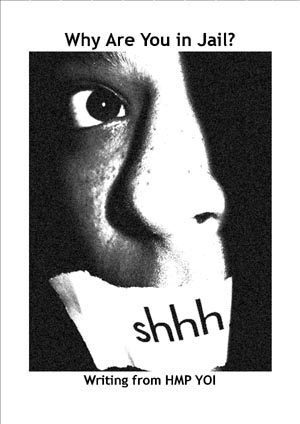Getting lads to write and read creatively
20 February 2013
By Michael Crowley
I’ve been writer in residence at HM Lancaster Farms’ young offender institution in the UK since 2007 through the Writers in Prison Foundation. I came across Arts Access Aotearoa during one of my web searches of arts work in prisons.
 The Farms, as we call it, holds around 500 young prisoners (lads as we call them) between the ages of 18 and 21. Although young offender institutions are not categorised, it’s essentially a category A jail – ranging from lads experiencing custody for the first time to prolific offenders serving life sentences.
The Farms, as we call it, holds around 500 young prisoners (lads as we call them) between the ages of 18 and 21. Although young offender institutions are not categorised, it’s essentially a category A jail – ranging from lads experiencing custody for the first time to prolific offenders serving life sentences.
So what’s my job? In brief, I get lads to write and to read creatively. This can be in any form: memoir, poetry, fiction or drama. And it can be for a number of reasons: for therapy; to improve literacy; to think about their offending or drug and alcohol use; or simply for the pleasure that creativity brings.
Creative writing anthologies
I produce regular creative writing anthologies in the jail and I’ve brought in actors to perform drama written by lads. We’ve also recorded work for National Prison Radio.
 Publicising the lads’ work is important because in part you are trying to change the atmosphere in the jail; to undercut the pro-criminal ethos with one that is characterised by an imaginative sensibility. It’s also a way to attract new recruits to the writing classes.
Publicising the lads’ work is important because in part you are trying to change the atmosphere in the jail; to undercut the pro-criminal ethos with one that is characterised by an imaginative sensibility. It’s also a way to attract new recruits to the writing classes.
Some lads will come to me with pieces already completed. Most will have drafts while others will have just an idea. Over the years I’ve developed, pillaged and adapted writing exercises to help participants quarry a memory or shape an experience or story idea.
I began to do this when I was a restorative justice worker in a youth justice team as a necessary way of preparing children who’d been asked by the court to meet victims. Writing about the offence helped them articulate their own feelings but also those of the person who had been harmed.
Poem by Dominic
Often I didn’t start with the offence but with some other part of their life, or a fictional story. For example, this poem by Dominic.
The Last Goodbye
I remember the taste of slimy whelks
my Granny’s caravan at Coney Island,
my hand piercing through the little
milk bottle tops as I picked it out of its shell,
my father’s hand turning silver trout in the frying pan.
We would go for walks
carrying me on his shoulders
my hands around his warm forehead.
I remember smoke and beer
the front room a cloud of smoke surrounding him
the tips of his fingers brownish yellowish.
I sanded a board of wood once
brought it home to show him.
I remember sitting across from the sombre priest.
His voice was quiet, a low hush, serious, concerned.
I knew the news was coming but when it did
the un-realness, the loneliness, the shock.
The piece above is by a lad at the Farms who lost his father while he was in custody. He approached me to help him write something in memory of his father and one of the things he did was an exercise based on the senses. So, for example:
• Sounds: His voice was quiet but serious, clear and concerning.
• Taste: Eating slimy whelks at my Grannie’s caravan at Coney Island.
An extract from Tom's Life
Another approach is to get them writing a “dualogue” over time between a past self and someone they might be now or in the future. So, for example, an extract from Tom’s Life:
I will carry on doing what I’m doing now.
You can get a job. It won’t be a good job.
Working in a shoe factory or making socks. It’s a job.
I live with my mum and that’s it. I don’t even respect her.
I got two letters off her on Saturday.
My dad threw me across the room.
He won’t be able to do that now.
I buzz off my area because we kick off every day and fight every day.
It’s a bad area to grow up in. When I get out, I’m moving away.
The culmination of my work to date in this area is Behind the Lines: creative writing with offenders and those at risk, published by Waterside Press. It’s a handbook designed as a companion to the excellent Geese Theatre Handbook with more than 80 writing and discussion exercises. It’s useful for teachers, probation officers and other writers – anyone trying to effect change, develop articulacy and insight.
Read our interview with Michael Crowley.


